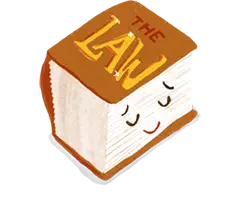Boating
This page contains different parts of laws about Boating, within the topic of Transport and travel.

Important laws about Boating
Weights and Measures Act 1987
When you can use different ways of measuring things instead of the metric system
9: Exceptions to obligations to use metric system of weights and measures
Telecommunications Act 2001
Don't block boats with phone or internet lines over rivers or seas
150: Lines over navigable waters
Immigration Act 2009
Rules for bringing people into New Zealand by air or sea
101: Obligations in relation to craft en route to or arriving in New Zealand
Immigration Act 2009
Rules for vehicle operators to provide passenger information when entering or leaving New Zealand
102: Obligations of carriers, and persons in charge, of craft to provide information
Immigration Act 2009
Rules for ships and planes leaving New Zealand and their companies
118: Obligations of carriers, and persons in charge, of craft
Immigration Act 2009
Legal protection for people in charge of vehicles when following immigration rules
123: Protection for carriers, and persons in charge, of craft
Immigration Act 2009
Penalties for carriers and craft operators who break immigration rules
349: Offences relating to carriers, and persons in charge, of craft
Immigration Act 2009
Information required from commercial transport operators before arriving in New Zealand
420: Information requirements for carrier, and person in charge, of commercial craft
Immigration Act 2009
Duties for those in charge of ships and planes heading to New Zealand
423: Responsibilities of carrier, and person in charge, of craft en route to New Zealand
Income Tax Act 2007
Tax rules for overseas ship owners carrying goods or people from New Zealand
CV 16: Non-resident shippers
Income Tax Act 2007
Tax exemption for foreign crew on visiting pleasure boats
CW 21: Amounts derived by visiting crew of pleasure craft
Local Government Act 2002
Check and update local rules within 5 years
158: Review of bylaws made under this Act or the Local Government Act 1974
More laws about Boating
About this project
What is this project?
How do we do this?
Why is the law written like it is?
Should we use AI for this?
Is this information the actual law?
You can talk to Community Law or Citizen's Advice Bureau about your rights.
Remember that AI can make mistakes, and just reading the law isn't enough to understand how it could be used in court.




